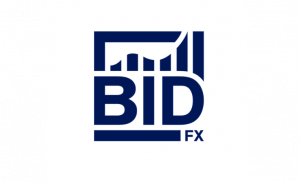The FX Algo Wheel, is it wheels up and ready to take flight?
by David Catterick, Sales Director, BidFX Australia

To most multi-asset dealing desks, the concept of an algo wheel isn’t too uncommon, particularly in Equities where it is widely used. Conversely, adopting algo wheels is still relatively uncommon within the world of FX, unlike equities, where algo flow represents a large part of the asset classes’ global volume. However, things are changing rapidly due to external factors such as the coronavirus pandemic, which has been a game changer for FX algo adoption with clients and dealers looking to offset risk, access fragmented liquidity, and, importantly, improve operational risk when working from home. It is estimated FX algo trading now represents approximately 10-20% of daily spot volume 1, and this number is clearly only going to increase as buy-side firms become more comfortable and reap the benefits of using algo suites. As this adoption and sophistication increases so does the innovation and technology behind the workflow.
Unsurprisingly, hedge funds have been ahead of the curve in embracing automation, API trading, vendor-based orders, and LP algo wheel functionality. What was a Hedge Fund led trend is now being firmly driven by the Asset Management community as they begin to implement FX workflow improvements and efficiencies to free their dealers up from the more repetitive, less value add orders that can take up valuable time yet add little to the outcome of the order execution. This allows buy-side dealers to focus on the more significant, tricky orders where effort must be spent to minimize market impact and achieve optimal execution. With improvements in vendor technology, setting up and maintaining conditions to route low-touch orders is now a simple enough task and doesn’t require a degree in coding to set up. In most cases, these simple tasks can be handled by the buy-side dealer themselves via an intuitive GUI.

This embracing of workflow technology on the buy-side has also now led to many global institutions implementing an algo wheel and utilizing TCA/LPA (Liquidity Provision Analytics) to monitor and assess the LP’s algo performance. This needs to be carried out on a continual feedback loop. To achieve this there needs to be a significant number of “apples for apples” criteria to be compared, for example, time of day, order size, currency pair, and algo type selected. Once established and enough data is collated (TCA), the feedback loop continues and helps a buy-side firm work with their LPs to improve algo efficiencies. It could also lead to other algo providers entering the wheel if performance is unsatisfactory.
With BidFX’s LPA, which is designed to improve traders’ pools of liquidity through analytics on their pricing from LPs, and quantities, traders can now enhance their decision-making in the algo wheel so that it’s optimally configured.
In conclusion, setting up an FX algo wheel is no longer a heavy lift; technology has evolved such that the benefits of the workflow improvements outstrip the initial planning effort that it takes to implement. The possibilities are endless; it will be interesting to see how FX algo wheel adoption occurs over the coming years.
1 BIS Survey – FX execution algorithms and market functioning









